ABOUT THE PROJECT
- THE PROJECT'S OBJECTIVE
- CONFERENCE
- VISIT
- CREATING GAMES
- WORK ON PUBLICATION
- Popularisation
- FUNDING
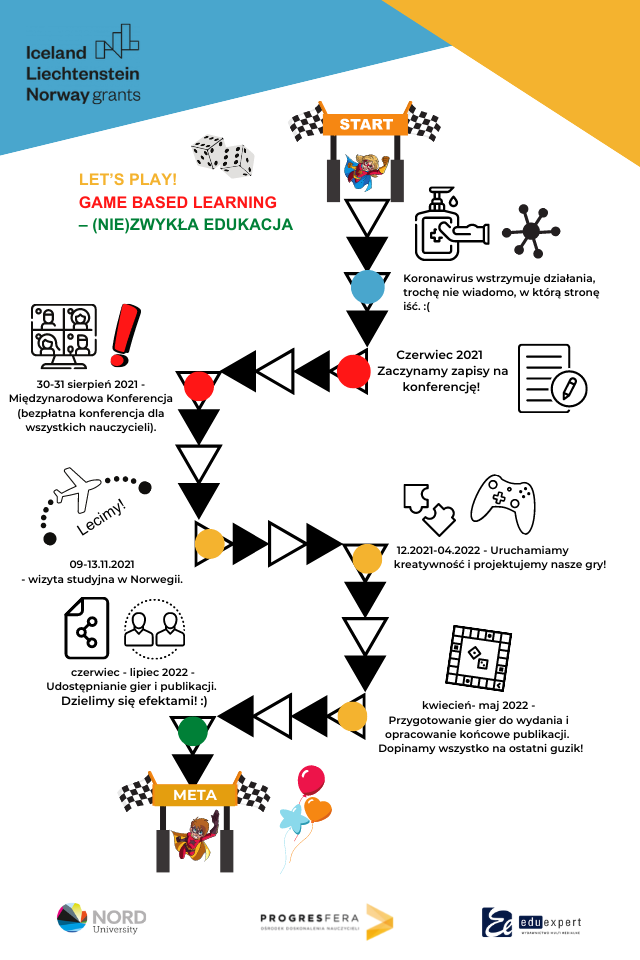
Let's PLAY! Game Based Learning- (un)ordinary education is to develop 3 innovative games for children adolescents with gamification and game-based-learning elements. The educational games will be made available free of charge to all interested schools for self-printing from a freely accessible website. Our goal is to popularise gamification and game-based-learning in the Polish educational system.
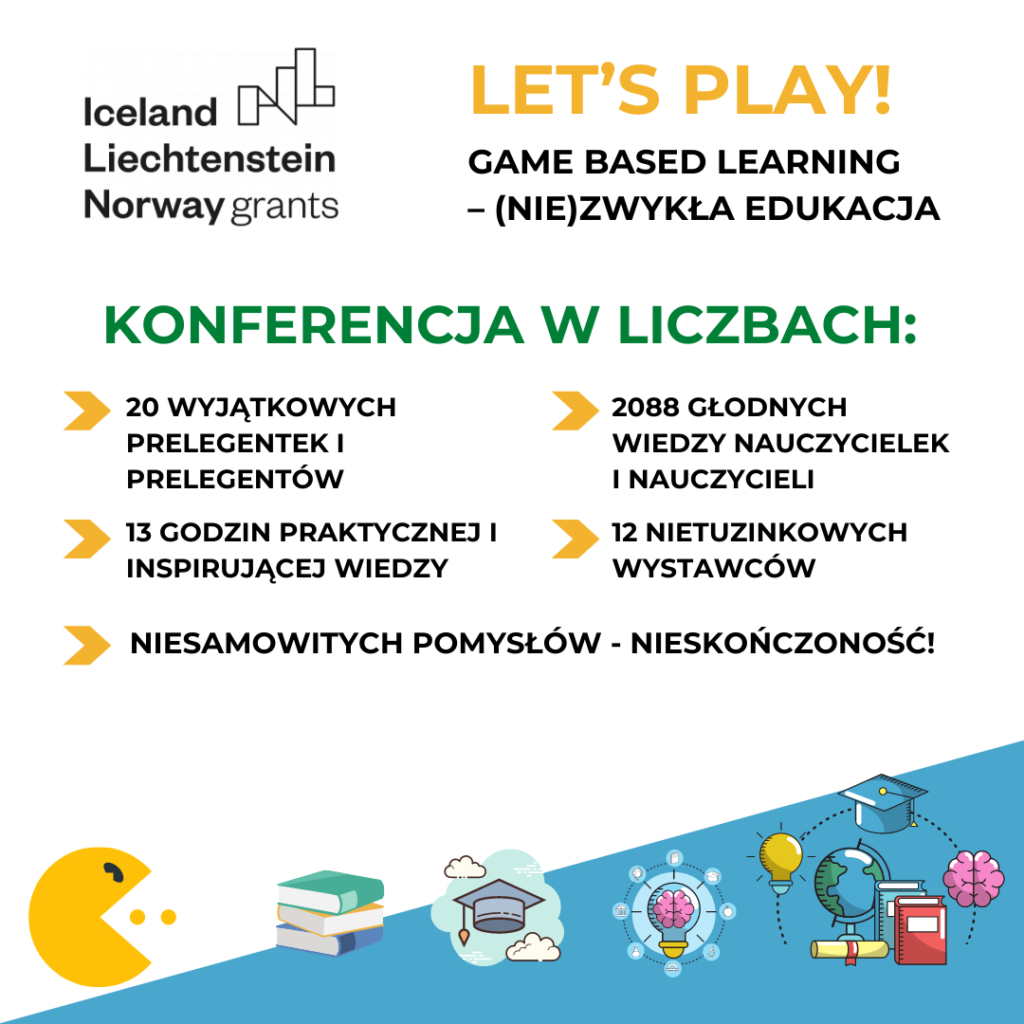
The two-day conference was a place to discuss the introduction of elements of Game Based Learning and Gamification to Polish education. We had the opportunity to listen to a group of distinguished speakers, and the conference participants themselves did not disappoint. Attendance was very high, and the level of substantive discussion and the number of interesting inspirations from teachers exceeded our expectations (as can be seen in the graphic on the left!).
The conference time was filled with excellent lectures, where participants had the opportunity to hear, among other things, about the impact of games on the development of children and young people, how to use games in the learning process, where to look for ideas for classroom management, etc. There was also a workshop part!Participants had the opportunity to take part in 1 of the 8 proposed workshops. The topics of the workshops varied from a workshop on the creation of board games, to outdoor games, to the use of apps and video games in the educational process. However, it is hard to divide the two parts (lecture and workshop) into more or less practical, as both were more practical!
You can find out by watching the individual presentations
We deliberately started our project with such a large conference. It allowed us to spread the word about game-based learning and gamification, During the event, teachers gained basic knowledge about the approach and methods, listened to practitioners who already have experience in using these solutions, and learnt (in workshops) about easy-to-use tools that they can implement in their work right away. Both experts from Poland and Norway spoke at the conference. The conference lasted 2 days and was also available online so that any interested teacher could attend.
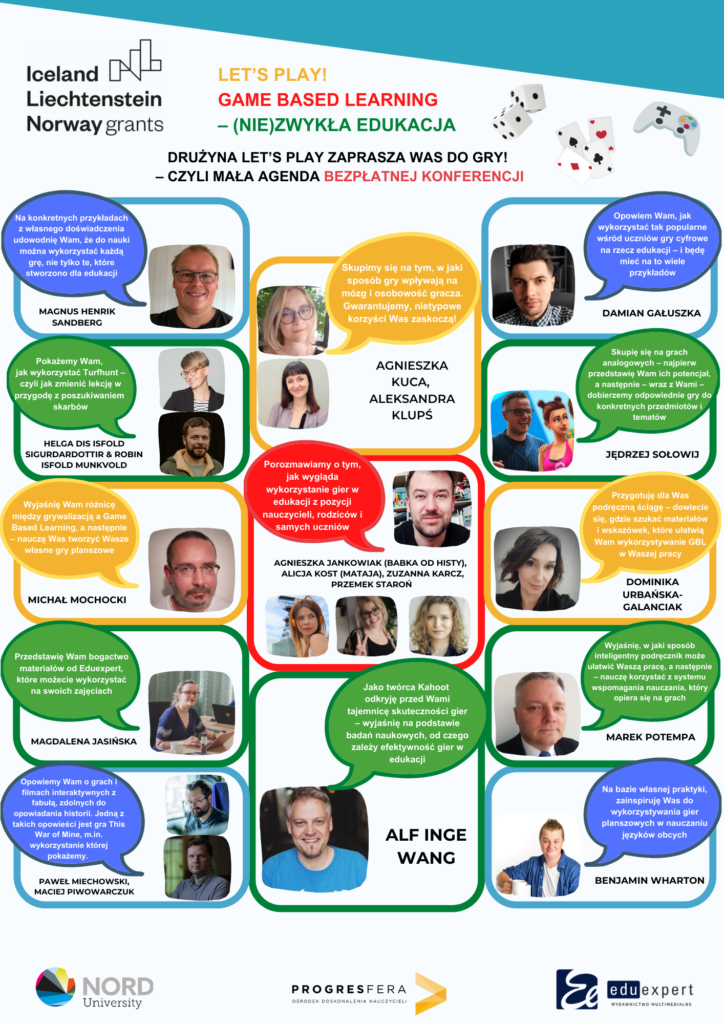
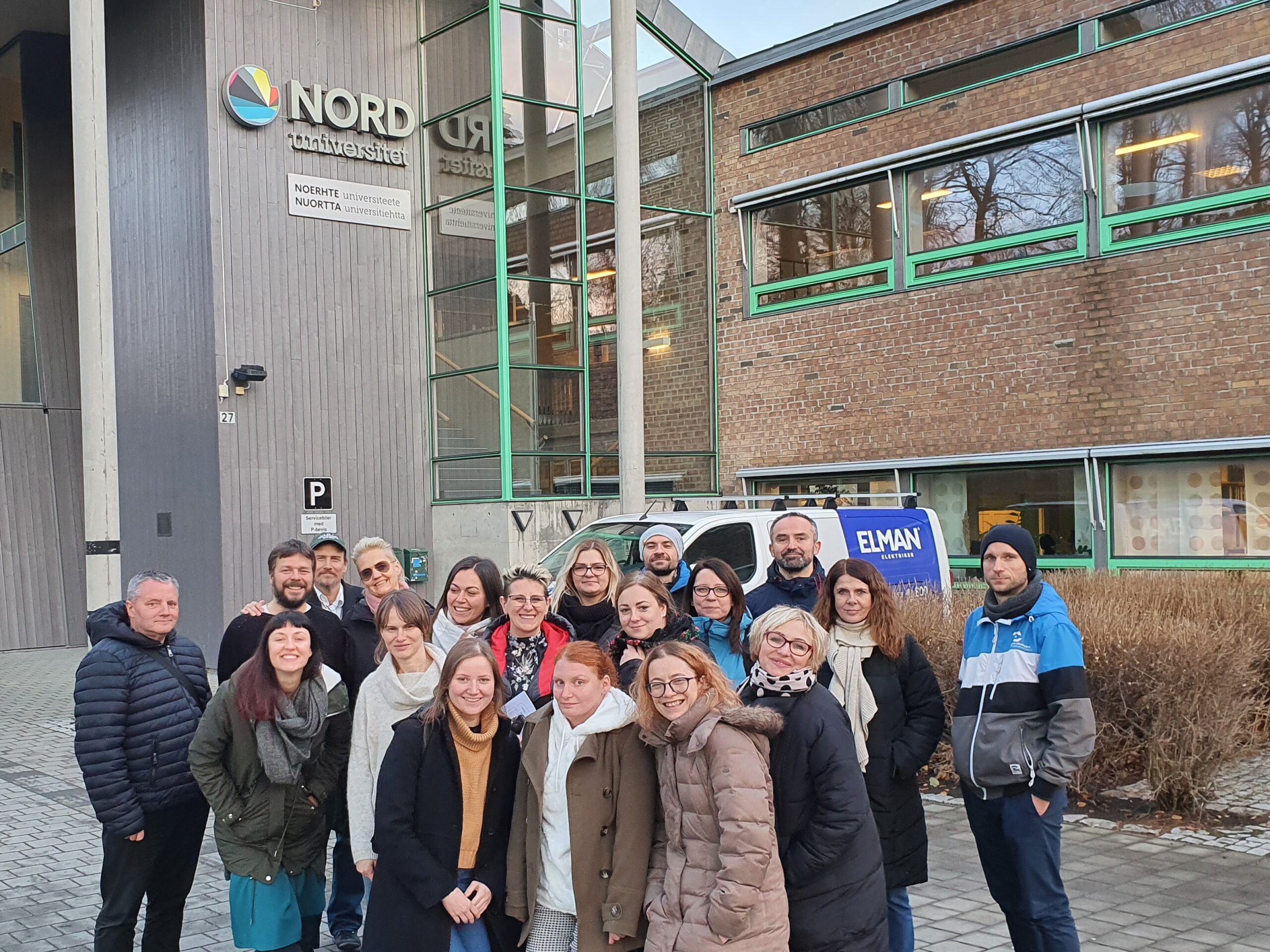
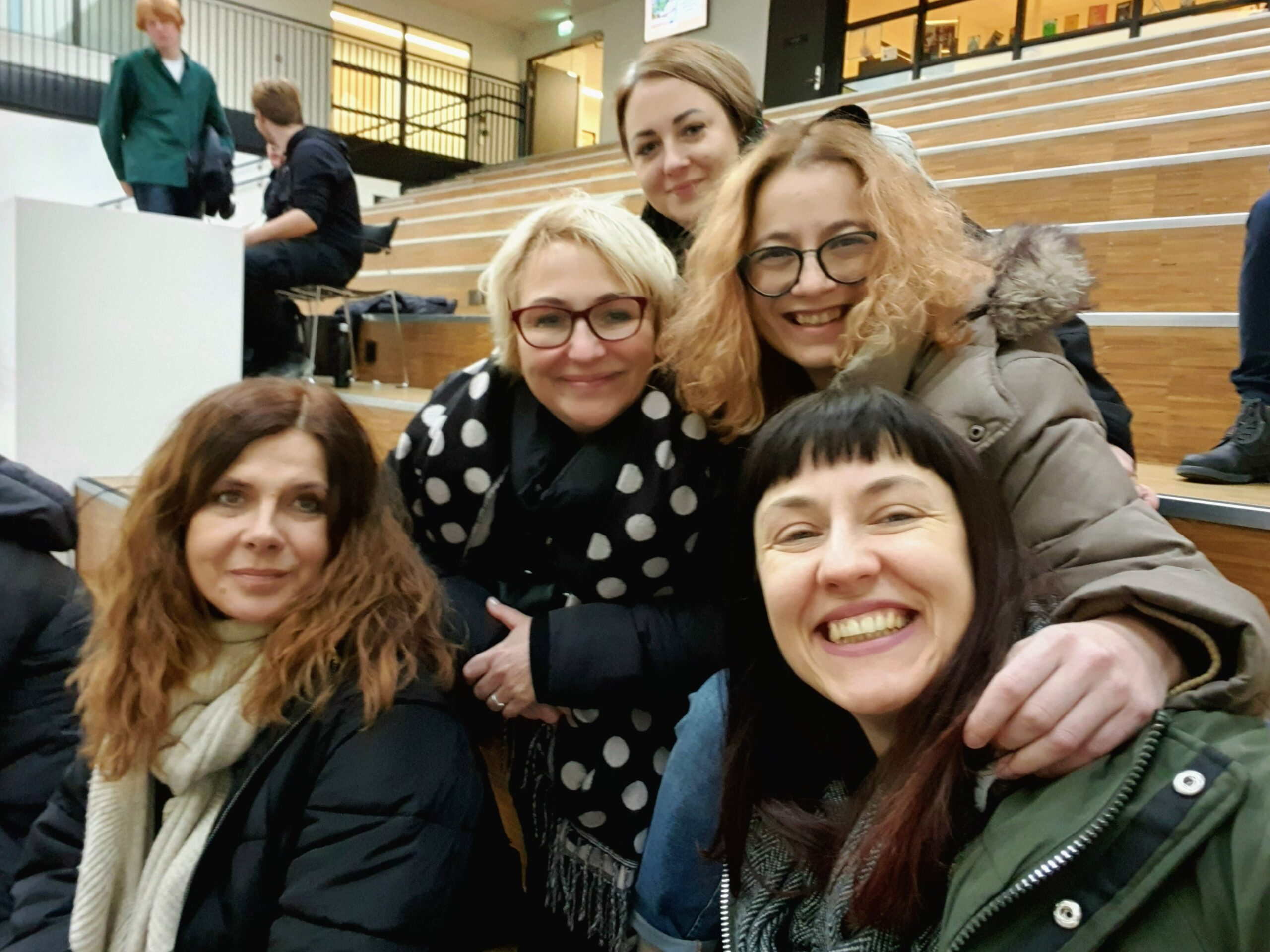
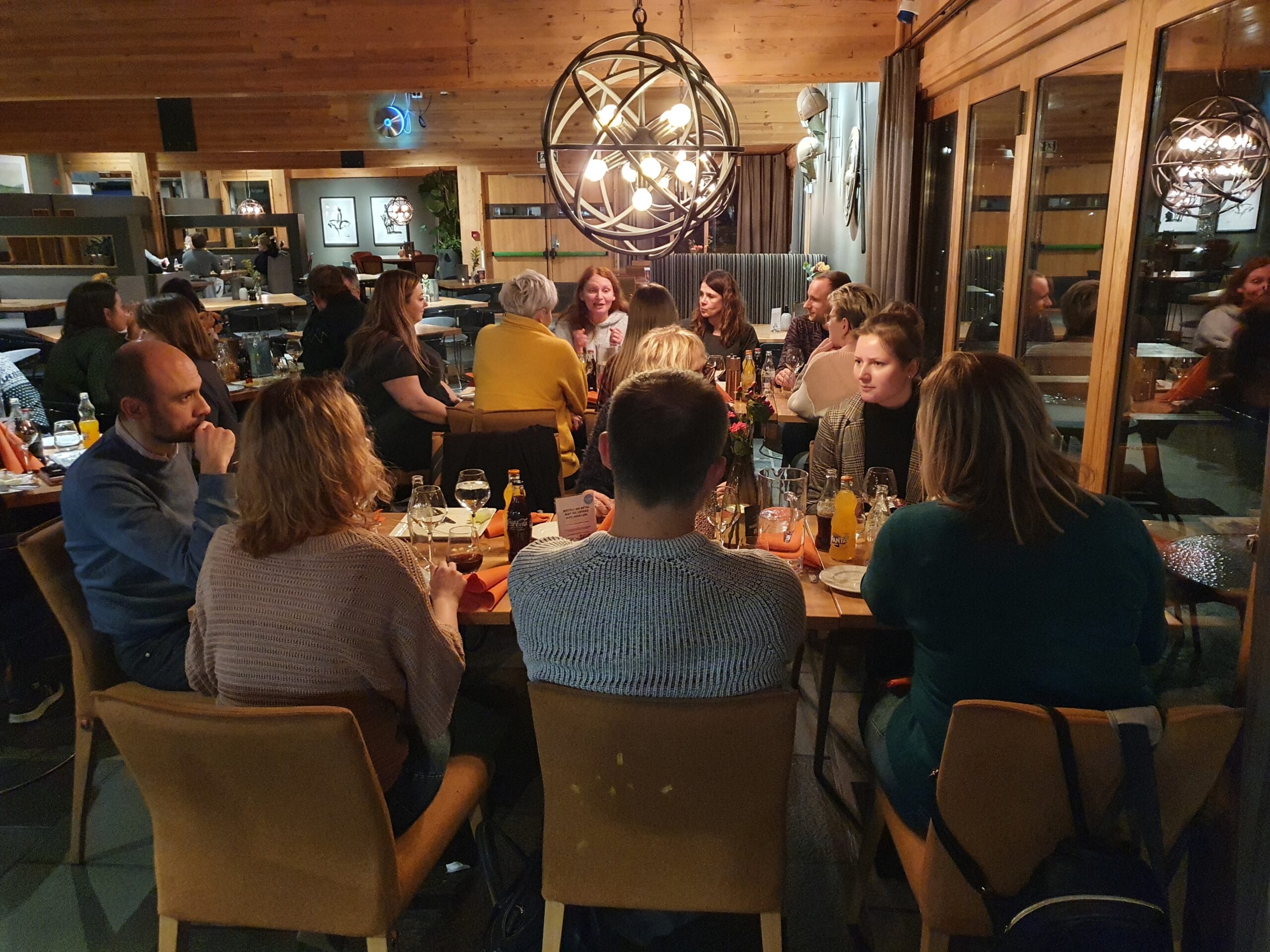
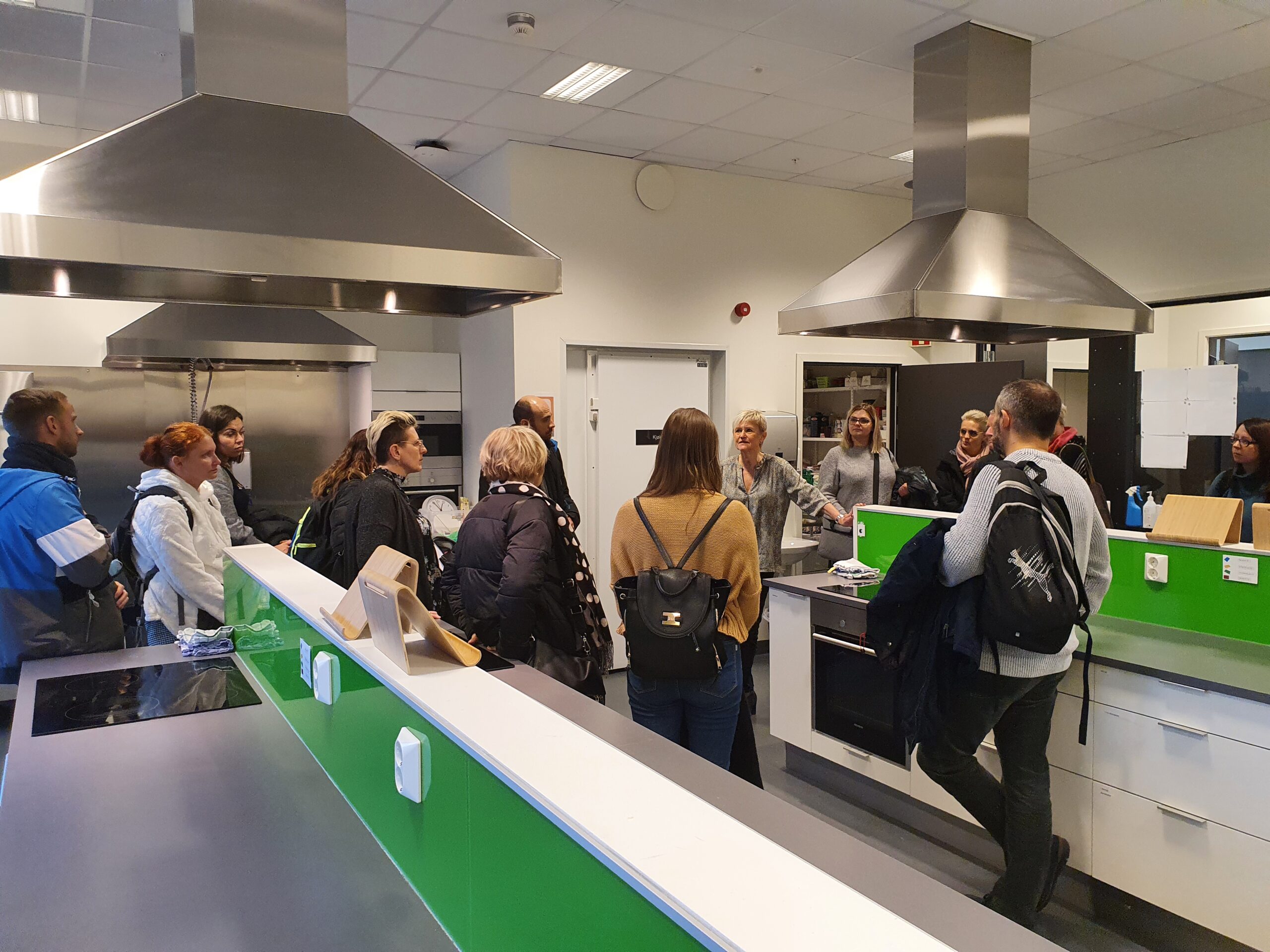
On 09-13.11.2021, 12 teachers from Poland together with representatives of the Partners - NODN Progresfera and Eduexpert flew to Norway for a 4-day study visit.
The programme of the visit was very diverse. The participants took part in workshops on game development, the Norwegian education system, the use of games in educational classes, and the principles of project work on games. In addition to this, however, we all had the opportunity to learn about a variety of games - both board games and digital games. Under the watchful eye of experienced experts, teachers were able to start working in project teams and prepare initial game prototypes.
The programme of the visit was very diverse. The participants took part in workshops on game development, the Norwegian education system, the use of games in educational classes, and the principles of project work on games. In addition to this, however, we all had the opportunity to learn about a variety of games - both board games and digital games. Under the watchful eye of experienced experts, teachers were able to start working in project teams and prepare initial game prototypes.
The study visit was a preparation for the participants to start working on educational games for the Polish educational system. At the same time, however, it allowed us to establish new, inspiring relationships and see new places. It was not without surprising surprises, long discussions and, of course, evenings with games 
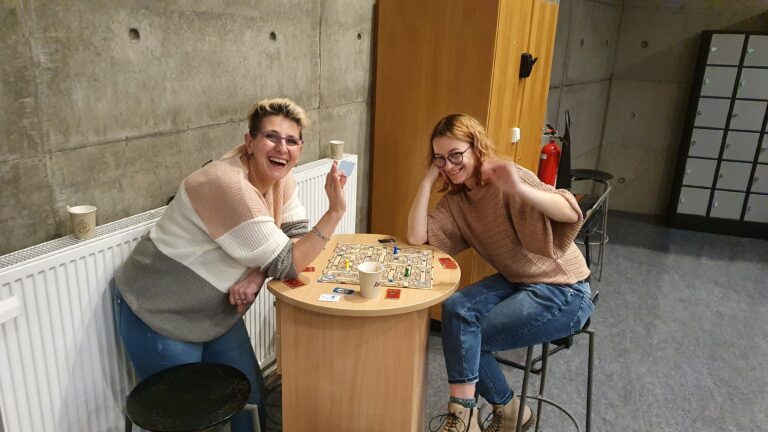
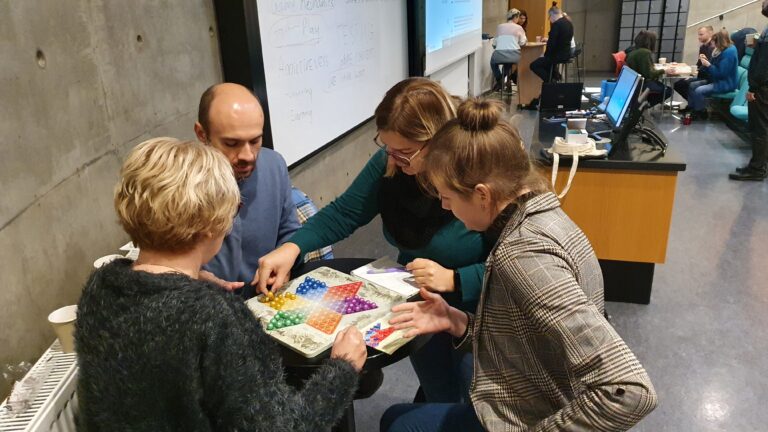
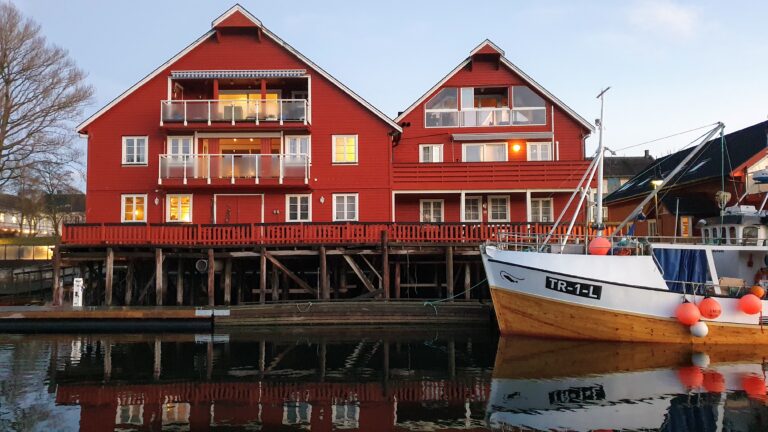
The teacher-game developers, upon their return from the study visit, were divided into three teams (responsible for three educational stages) and began a several-month-long phase of creating educational games. The working groups had continuous support from all Partners participating in the project. The Norwegian partner - NORD University - provided support of content experts, the Polish partner - Eduexpert - helped with graphic design issues, and we - NODN Progresfera - supervised the work of the teams and supported their cooperation.
All of this was done to ensure that the games are of the highest possible quality in terms of content and aesthetics.
We would like to introduce you to the teachers who are the authors of the games:
The team preparing the game for grades 1-3 SP:
Ding! Ding! The table is served
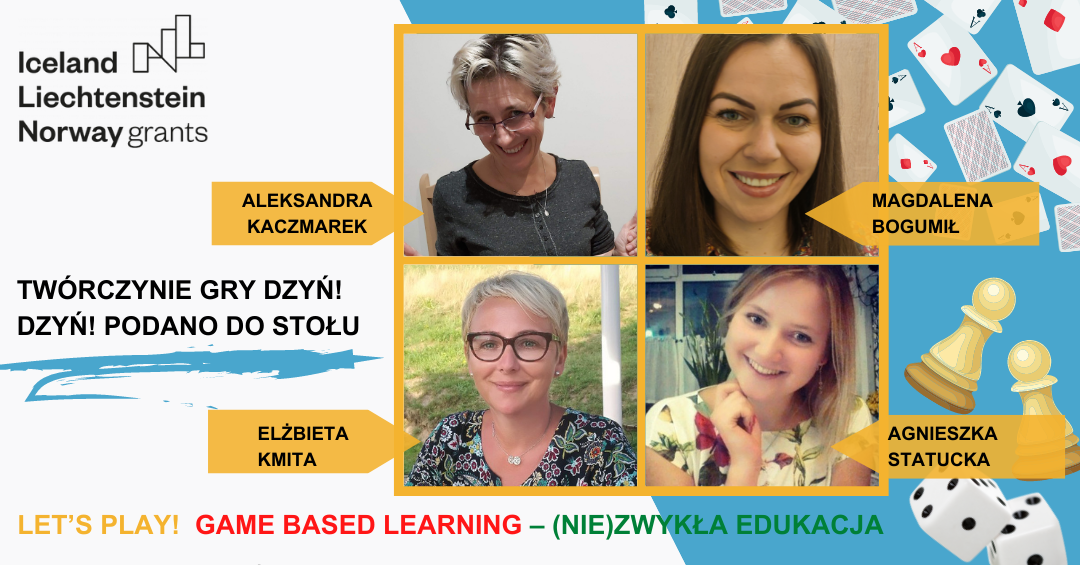
Magdalena Bogumił:
Graduated in Early Childhood and Pre-school Pedagogy and Pedagogical Therapy. She is a teacher of early childhood education and a librarian. She plays analogue and digital games together with children, her pupils make their first attempts at game creation. Through field and outdoor games, she fosters a love of nature in her pupils.
Aleksandra Kaczmarska:
She is an early childhood education teacher. She founded the "WinMy" board game club at her school 3 years ago. She is also a methodical advisor. She promotes the use of board games in lessons. She conducts various training sessions, conferences and open lessons using games.
Elżbieta Kmita:
She has a degree in Pedagogy (Early Childhood Education) and speech therapy. She is an early childhood education teacher with 30 years of experience and has been providing speech therapy for 20 years. She specialises in using a wide range of activating methods in early childhood education and in developing pupils' divergent thinking.
Agnieszka Statucka:
Early childhood education teacher. She has been interested in gamification for a long time and has always been fascinated by games and their mechanisms, which unleash children's enormous potential. She is also writing her thesis on gamification of education and good practices that could be applied to early childhood education in Polish schools.
The team preparing the game for grades 4-8 Primary School:
Wild Freak Farm
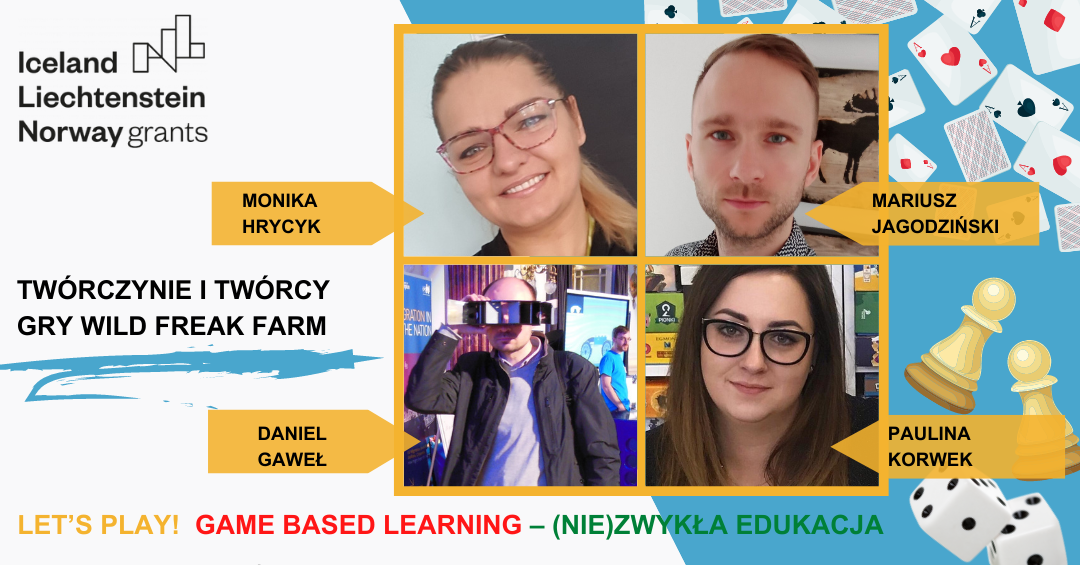
He works in a hospital school, a place where teaching is of great educational and therapeutic importance. He has been involved in international educational projects for several years and his motto has become 'making science more atractive'. He firmly believes in gamification - its educational potential and psychological value. Games in lessons make learning less boring, the teacher enriches his workshop, and school is associated with a place where time can be well spent.
She is a primary school science teacher (nature, biology and chemistry). Likes to use gamification in her work . She develops simple games with her pupils, e.g. based on card games, monopoly and ludo. She has also created a number of escape games, which she uses to review material.
Paulina Korwek:
Teacher of early childhood and pre-school education and art education in visual arts. For about 7 years, she has been an art class instructor and founder of the SKAMA Board Game Club. On a daily basis, she uses games on many levels, both as educational, entertaining, developmental and integrative materials and resources.
Mariusz Jagodziński:
Teacher of geography and safety education. Board games are a huge passion of his. He himself has quite a large collection of games at home. He uses analogue and virtual games in teaching on a daily basis. He appreciates their impact on improving the quality of education in schools.
Team preparing a game for secondary school classes:
Matlajf
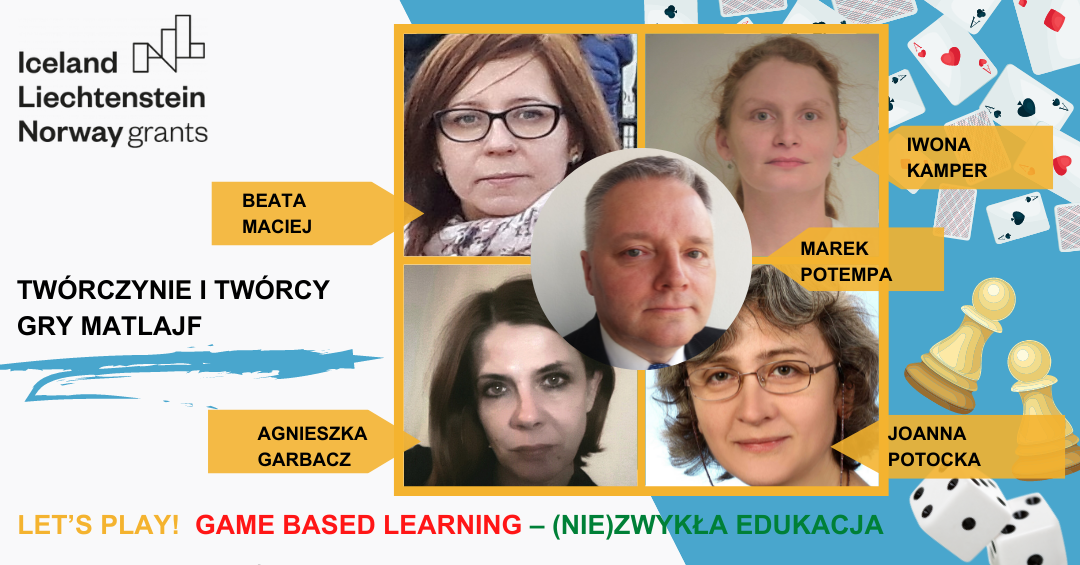
Iwona Kamper:
A mathematics teacher at a technical secondary school, she has 12 years of professional experience. Her passion for board games was infected by her own children - long winter evenings filled with super fun encouraged her to implement games into her lessons. Why? Because when learning becomes a pleasure instead of a chore, everyone benefits - pupils and teacher alike.
Beata Maciej:
A Teacher of mathematics and chemistry at the Technical School. She uses the eduScrum method and her own videos in her lessons. Together with a group of 40 students, she created 10 maths games as part of the mPotential programme. She teaches programming and robotics, where, as part of the Touch Maths project, students designed dominoes, chess and solids adapted for blind and partially sighted students.
Marek Potempa:
A teacher of English and vocational subjects at the Technical School Complex with many years of experience. Creator of applications to support students and teacher in their daily challenging work. He created a system called Alph-korepetytor, which uses elements of gamification to arouse students' engagement in learning a foreign language.
If she thinks of her work, she thinks of it first as a botanist-naturalist, only then as she teaches high school and technical school biology. So far, she hasn't designed her own games, and since she often uses maps in her fieldwork and considers maps to be a model for synthesising information about different phenomena, hence the idea that some kind of map would be the game board that her team would prepare.
Agnieszka Garbacz :
A teacher of Polish, German and ethics. Has worked at the school for 22 years. Advocate of activating methods and subjectivity at school. She is constantly looking for new and inspiring challenges to develop her students and herself. She finds games and gamification to be interesting forms of teaching, attractive to pupils and adding variety to school boredom.
Authors of the publication

Robin Isfold Munkvold
Associate professor in the field of information technology. He has been working as a lecturer at universities since 1999, teaching in the fields of software architecture, project management, social sciences, databases, game design and development, ICT and many other fields of study. Her research focuses primarily on ICT, games and pedagogy/techniques for effective learning among computer science students. He is particularly involved with the Centre for Excellent IT-education and is the leader of the Norwegian Association of Researchers at Nord University. Robin has led several international projects incorporating developments in games, learning and pedagogy. He is also the author of a number of international scientific publications.

Helga Dis Isfold Sigurdardottir
She holds a PhD in science and technology from the Norwegian University of Science and Technology in Trondheim, Norway. She is currently an associate professor, teaching computer games and multimedia arts at Nord University. Her research interests focus on social and educational anthropology and especially on - digital games. Additionally, she is involved in research on online communication, activism, inclusion and ICT. Helga - either as a leader or team member - has been involved in several international research projects that have covered the topics of her interest. She is also the author of numerous scientific publications.
Webinar on the game DING ! DING! The table is served
(for early childhood education)
Trainers leading the webinar:
Aleksandra Kaczmarska
Elżbieta
Kmita
Magdalena Bogumił
Webinar on the game WILD FREAK FARM
(for grades 4-8 of primary school)
Trainers leading the webinar:
Monika
Hrcyk
Mariusz Jagodziński
Paulina
Korwek
Webinar on the game MATLAJF
(for secondary schools)
Trainer leading the webinar:
Iwona Kamper

- The Let's PLAY! Game Based Learning - (extra) ordinary education project benefits from a 108650 € grant from Iceland, Liechtenstein and Norway through the EEA Grants. The aim of the project is is popularizing gamification and game-based-learning in the Polish education system.
- Grant application number EOG/19/K4/W/0043W0080
- Lead time: 01.08.2020-31.07.2022 r.
- Grant amount: 127823 EURO (including EUR 108649.55 from the EEA Financial Mechanism 2014-2021 and EUR 19173.45 from the state budget)
- Source of funding: the project is implemented under the Education Programme (Component IV), funded by the E Programme operator: Foundation for the Development of the Education System: www.frse.org.pluropean Economic Area Financial Mechanism 2014-2021.
- Programme operator: Foundation for the Development of the Education System: www.frse.org.pl